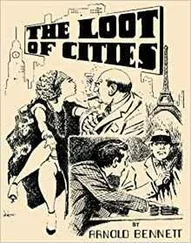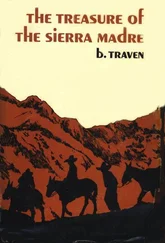Arnold Bennett - In the Capital of the Sahara
Здесь есть возможность читать онлайн «Arnold Bennett - In the Capital of the Sahara» весь текст электронной книги совершенно бесплатно (целиком полную версию без сокращений). В некоторых случаях можно слушать аудио, скачать через торрент в формате fb2 и присутствует краткое содержание. Год выпуска: 0101, Жанр: Классический детектив, на английском языке. Описание произведения, (предисловие) а так же отзывы посетителей доступны на портале библиотеки ЛибКат.
- Название:In the Capital of the Sahara
- Автор:
- Жанр:
- Год:0101
- ISBN:нет данных
- Рейтинг книги:5 / 5. Голосов: 1
-
Избранное:Добавить в избранное
- Отзывы:
-
Ваша оценка:
- 100
- 1
- 2
- 3
- 4
- 5
In the Capital of the Sahara: краткое содержание, описание и аннотация
Предлагаем к чтению аннотацию, описание, краткое содержание или предисловие (зависит от того, что написал сам автор книги «In the Capital of the Sahara»). Если вы не нашли необходимую информацию о книге — напишите в комментариях, мы постараемся отыскать её.
In the Capital of the Sahara — читать онлайн бесплатно полную книгу (весь текст) целиком
Ниже представлен текст книги, разбитый по страницам. Система сохранения места последней прочитанной страницы, позволяет с удобством читать онлайн бесплатно книгу «In the Capital of the Sahara», без необходимости каждый раз заново искать на чём Вы остановились. Поставьте закладку, и сможете в любой момент перейти на страницу, на которой закончили чтение.
Интервал:
Закладка:
"You seem annoyed."
"Mr. Thorold, I am a poet in these things. It annoys me to see a fine composition ruined by bad construction in the fifth act. . . . However, as chief of the surety, I rejoice."
"You have located the thieves and the plunder?"
"I think I have. Certainly I have captured two of the thieves and several articles. The bulk lies at ——" He stopped and looked round. "Mr. Thorold, may I rely on you? I know, perhaps more than you think of your powers. May I rely on you?"
"You may," said Cecil.
"You will hold yourself at my disposition during to-morrow, to assist me?"
"With pleasure."
"Then let us take coffee. In the morning, I shall have acquired certain precise information which at the moment I lack. Let us take coffee."
III.
On the following morning, somewhat early, while walking near Mecid, one of the tiny outlying villages of the oasis, Cecil met Eve Fincastle and Kitty Sartorius, whom he had not spoken with since the affair of the bracelet at Bruges, though he had heard from them and had, indeed, seen them at the station two days before. Eve Fincastle had fallen rather seriously ill at Mentone, and the holiday of the two girls, which should have finished before the end of the year, was prolonged. Financially, the enforced leisure was a matter of trifling importance to Kitty Sartorius, who had insisted on remaining with her friend, much to the disgust of her London manager. But the journalist's resources were less royal, and Eve considered herself fortunate that she had obtained from her newspaper some special descriptive correspondence in Algeria. It was this commission which had brought her, and Kitty with her, in the natural course of an Algerian tour, to Biskra.
Cecil was charmed to see his acquaintances; for Eve interested him, and Kitty's beauty (it goes without saying) dazzled him. Nevertheless, he had been, as it were, hiding himself, and, in his character as an amateur of the loot of cities, he would have preferred to have met them on some morning other than that particular morning.
"You will go with us to Sidi Okba, won't you, to-day?" said Kitty, after they had talked a while. "We've secured a carriage, and I'm dying for a drive in the real, true desert."
"Sorry I can't," said Cecil.
"Oh, but ——" Eve Fincastle began, and stopped.
"Of course you can," said Kitty imperiously. "You must. We leave to-morrow — we're only here for two days — for Algiers and France. Another two days in Paris, and then London, my darling London, and work! So it's understood?"
"It desolates me," said Cecil. "But I can't go with you to Sidi Okba to-day."
They both saw that he meant to refuse them.
"That settles it, then," Eve agreed quietly.
"You're horrid, Mr. Thorold," said the bewitching actress. "And if you imagine for a single moment we haven't seen that you've been keeping out of our way, you're mistaken. You must have noticed us at the station. Eve thinks you've got another of your ——"
"No, I don't, Kitty," said Eve quickly.
"If Miss Fincastle suspects that I've got another of my ——" he paused humorously, "Miss Fincastle is right. I have got another of my ——. I throw myself on your magnanimity. I am staying in Biskra under the name of Collins, and my time, like my name, is not my own."
"In that case," Eve remarked, "we will pass on."
And they shook hands, with a certain frigidity on the part of the two girls.
During the morning, M. Sylvain made no sign, and Cecil lunched in solitude at the Dar Eef, adjoining the Casino. The races being over, streams of natives, with their tents and their quadrupeds, were leaving Biskra for the desert; they made an interminable procession which could be seen from the window of the Dar Eef coffee room. Cecil was idly watching this procession, when a hand touched his shoulder. He turned and saw a gendarme.
"Monsieur Collang?" questioned the gendarme.
Cecil assented.
"Voulez-vous avoir l'obligeance de me suivre, monsieur?"
Cecil obediently followed, and found in the street M. Sylvain, well wrapped up, and seated in an open carriage.
"I have need of you," said M. Sylvain. "Can you come at once?"
"Certainly."
In two minutes they were driving away together into the desert.
"Our destination is Sidi Okba," said M. Sylvain. "A curious place."
The road (so called) led across the Biskra River (so called), and then in a straight line eastwards. The river had about the depth of a dinner plate. As for the road, in some parts it not only merely failed to be a road — it was nothing but virgin desert, intact: at its best it was a heaving and treacherous mixture of sand and pebbles, through which, and not over which, the two unhappy horses had to drag Sylvain's unfortunate open carriage.
M. Sylvain himself drove.
"I am well acquainted with this part of the desert," he said. "We have strange cases sometimes. And when I am on important business, I never trust an Arab. By the way, you have a revolver? I do not anticipate danger, but ——"
"I have one," said Cecil.
"And it is loaded?"
Cecil took the weapon from his hip pocket and examined it.
"It is loaded," he said.
"Good!" exclaimed the Frenchman, and then he turned to the gendarme, who was sitting as impassively as the leaps and bounds of the carriage would allow, on a small seat immediately behind the other two, and demanded of him in French whether his revolver also was loaded. The man gave a respectful affirmative. "Good!" exclaimed M. Sylvain again, and launched into a description of the wondrous gardens of the Comte Landon, whose walls, on the confines of the oasis, they were just passing.
Straight in front could be seen a short line of palm trees, waving in the desert breeze under the desert sun, and Cecil asked what they were.
"Sidi Okba," replied M. Sylvain. "The hundred and eighty thousand palms of the desert city of Sidi Okba. They seem near to you, no doubt, but we shall travel twenty kilometers before we reach them. The effect of nearness is due to the singular quality of the atmosphere. It is a two hours' journey."
"Then do we return in the dark?" Cecil inquired.
"If we are lucky, we may return at once, and arrive in Biskra at dusk. If not — well, we shall spend the night in Sidi Okba. You object?"
"Not at all."
"A curious place," observed M. Sylvain.
Soon they had left behind all trace of the oasis, and were in the "real, true desert." They met and passed native equipages and strings of camels, and from time to time on either hand at short distances from the road could be seen the encampments of wandering tribes. And after interminable joltings, in which M. Sylvain, his guest, and his gendarme were frequently hurled at each other's heads with excessive violence, the short line of palm trees began to seem a little nearer and to occupy a little more of the horizon. And then they could descry the wall of the city. And at last they reached its gate and the beggars squatting within its gate.
"Descend!" M. Sylvain ordered his subordinate.
The man disappeared, and M. Sylvain and Cecil drove into the city; they met several carriages of Biskra visitors just setting forth on the return journey.
In insisting that Sidi Okba was a curious place, M. Sylvain did not exaggerate. It is an Eastern town of the most antique sort, built solely of mud, with the simplicity, the foulness, the smells, and the avowed and the secret horrors which might be expected in a community which has not altered its habits in any particular for a thousand years. During several months of each year it is visited daily by Europeans (its mosque is the oldest Mohammedan building in Africa, therefore no respectable tourist dares to miss it), and yet it remains absolutely uninfluenced by European notions. The European person must take his food with him; he is allowed to eat it in the garden of a café which is European as far as its sign and its counter, but no further; he could not eat it in the café itself. This café is the mark which civilisation has succeeded in making on Sidi Okba in ten centuries.
Читать дальшеИнтервал:
Закладка:
Похожие книги на «In the Capital of the Sahara»
Представляем Вашему вниманию похожие книги на «In the Capital of the Sahara» списком для выбора. Мы отобрали схожую по названию и смыслу литературу в надежде предоставить читателям больше вариантов отыскать новые, интересные, ещё непрочитанные произведения.
Обсуждение, отзывы о книге «In the Capital of the Sahara» и просто собственные мнения читателей. Оставьте ваши комментарии, напишите, что Вы думаете о произведении, его смысле или главных героях. Укажите что конкретно понравилось, а что нет, и почему Вы так считаете.












